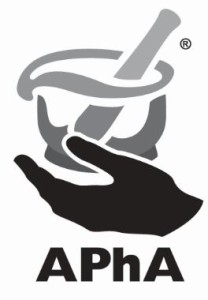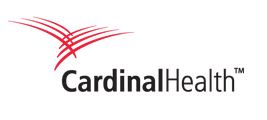- Lawyers consider judicial review of consultation on community pharmacy (pharmaceutical-journal.com)Hundreds of local chemists set to close leaving sick and elderly without vital lifeline (express.co.uk)
Lawyers have given health minister Alistair Burt a deadline of 4pm on 18 March 2016 to respond to claims that the consultation on proposed cuts to the pharmacy budget in England is illegal and should be abandoned...If the government does not accept that the consultation is illegal then lawyers will consider going to the High Court to seek a judicial review of the consultation process and the content of the consultation document...The prospect of legal action comes three months after the Department of Health first outlined its proposals for the community pharmacy sector in England in a letter to the Pharmaceutical Services Negotiating Committee. The letter...set out plans to cut the community pharmacy contractual framework by 6.1% in 2016. As well as the funding cuts, the proposals include a range of measures to make efficiency savings in the sector while extending clinical roles for the profession...Healthwatch England told the government that there is a "clear appetite" for community pharmacy to play a greater role in health prevention, the treatment of minor ailments and supporting people with long-term conditions. It says consumers value pharmacy’s accessibility and some believe co-locating pharmacies to GP surgeries makes sense...However, the organisation gives a cautious welcome to the idea of ‘hub-and-spoke’ dispensing and says that where medicines are assembled centrally, patients will still need local access to expert pharmacy advice.
- 3 Legislative and Regulatory Updates Pertinent to Pharmacists (pharmacytimes.com)
...at APhA’s 2016 Annual Meeting & Exposition...they discussed...the proposed nondiscrimination rule, pending pharmacist provider status legislation, and draft guidance on prescription drug abuse...
- Proposed Nondiscrimination Rule - Under this proposed rule, pharmacies would be required to offer language assistance services to patients with limited English, unless the pharmacy would face "undue financial burden," or if doing so would "result in a fundamental alternation in an entity’s health program or entity,"...also applies to the requirement that pharmacies provide auxiliary aids and services and the accessibility of programs through electronic and information technology...HHS does not expect compliance with the proposed rule to cost too much, and training employees on these new requirements is voluntary.
- Pharmacist Provider Status Legislation - legislation would allow pharmacists to be reimbursed for their services as long as the pharmacist serves in medically underserved areas, health professional shortage areas, or for medically underserved populations and follows the state’s scope of practice laws...there has been no opposition to the proposed legislation...cost will be a challenge...The next steps are getting a Congressional Budget Office score, meaning a cost estimate for the bill...they hope to see a score within a few weeks, and then a few weeks later, they can expect a House hearing.
- Draft Guidance on Prescription Drug Abuse - the Centers for Disease Control and Prevention issued draft guidance for prescribing opioids for chronic pain, which were fairly controversial...APhA’s comments on the guidelines included the fact that a team-based approach to care including pharmacists was needed. In addition, the guidelines should mention that the lowest-effective dose should be patient-specific, and more education is needed for health care professionals.
- Cardinal Health bullish on medication synchronization (chaindrugreview.com)
Cardinal Health Inc. said its new medication synchronization program...offers manifold benefits for community pharmacies in terms of patient care and efficiency...MedSync Advantage enables pharmacists to coordinate a patient’s prescriptions to be picked up on the same day each month…the program not only simplifies the process for patients and caregivers who must fill multiple prescriptions, but it also improves patient medication adherence by helping to ensure they fill all scripts each month...the number of prescriptions that a patient fills each month sharpens inventory management for the pharmacy and opens up more time for the pharmacy staff to focus on interacting with patients…We believe medication synchronization is a core competency for medication therapy management expansion in the pharmacy, and we want to prepare our pharmacies to move toward a value-based pharmacy model for payment in the future...It’s a win for the patient, and it’s a win for us because it evens out our workflow and helps us operate more efficiently...The most visible thing you get from medication synchronization is your time back…
- Could Preemptive Pharmacogenomic Testing Emerge as an MTM Best Practice? (pharmacytimes.com)
Modern technology is now making genomic testing possible for a fraction of the time and cost..Now pharmacists and physicians can use pharmacogenomic test results to help choose safer and more effective medications for their patients...Pharmacists are undoubtedly the pharmacokinetic experts and the most educated health care providers in regard to the cytochrome P450 system. Preemptive genotyping would make a nice addition to a pharmacy’s list of service offerings and point-of-care testing panel...A clinical consultant pharmacist could use pharmacogenomic testing to guide therapy decisions and decrease drug–drug interactions. This has the potential to save countless health care dollars lost to ineffective medication use, adverse drug events, and hospital readmissions...There are also financial benefits for the testing pharmacy. Looking at pharmacogenomic testing from a medication therapy management perspective, one can imagine the usefulness of integrating genomic testing into a patient’s comprehensive medication review...to make specific evidence-based recommendations to improve patient care.
- Proven cost savings in elderly patients
- Help in predicting and preventing adverse drug reactions
- Decreased hospitalizations due to treatment failure
- Prevention of “trial-and-error” prescribing
Pharmacists are the experts on medication safety and effectiveness, and should be ready to take on the role of personalized medication consultants...Innovation is essential if pharmacy wants to act on new clinical service opportunities and earn a seat at tomorrow’s health care table. We need to be proactive in seeking out new niches...
- Pharmacists Should Target ACS Patients with Low Health Literacy (pharmacytimes.com)
Patients with limited health literacy are especially vulnerable to medication-related problems that contribute to hospital readmissions...recently published a study that shows targeted pharmacist interventions may reduce unplanned health care utilization among patients with limited health literacy...This...study employed medication reconciliation, inpatient counseling, low-literacy adherence aids, and individualized telephone follow-up to reduce 30-day hospital readmissions. It enrolled patients with acute coronary syndrome and acute decompensated heart failure...pharmacist intervention...reduced health care utilization...primarily through decreased emergency department visits...Patients with limited health literacy have more to gain from pharmacist intervention. They face barriers to care that pharmacists can help bridge...targeting patients with low health literacy to produce the greatest benefit with limited resources. The researchers recommended stratifying patients based on health literacy at admission and including pharmacist-driven medication-related problem interventions in a multidisciplinary and multifactorial initiative.
- Do Prescribing Doctors Act on Pharmacist Recommendations? (specialtypharmacytimes.com)
Among their list of responsibilities, pharmacists serve as an important member of an interdisciplinary care team to protect patient health and safety while minimizing costs...Existing literature shows that by communicating recommendations to prescribing doctors, pharmacists can help to measurably reduce costs, control chronic diseases like hypertension, diabetes, and hyperlipidemia, and improve patient outcomes...The prevalence of prescribing doctors acting upon pharmacist recommendations has been previously studied, with results ranging anywhere from 31% to 81%. Most assessments find that a pharmacist’s recommendation succeeds in modifying a doctor’s prescription about 50% of the time...Doctors are more likely to accept pharmacist recommendations intended to save costs (versus safety or guideline adherence), and they are more likely to accept recommendations to change or stop a medication (50%) than they are to start a new medication (41.7%)...
- 3 Key Findings on HIV Medication Errors (pharmacytimes.com)
Medication errors injure thousands of patients annually, and while mistakes occur with all medication classes, those involving antiretroviral therapies are particularly troublesome...Past studies have suggested that errors are driven by prescribers’ lack of familiarity about antiretrovirals, patients’ ignorance about their complete regimens, and low patient health literacy...Antiretroviral stewardship, which involves educating prescribers and patients and reviewing orders prospectively, helps increase the use of evidence-based medication regimens...researchers addressed the impact of such stewardship on medication errors...The researchers made the following 3 key findings:
- Medication error rates for patients admitted in the first year were high, but decreased over the 3-year period.
- Half of the errors occurred in the first 24 hours after admission, especially during late-night and weekend hours when formal consults were unavailable.
- Incorrect dosing was the most common error, followed by inappropriate use of proton pump inhibitors or histamine-2 receptor antagonists with atazanavir (Reyataz) or rilpivirine (Edurant).
...the study authors recommended initiating an antiretroviral stewardship team that includes infections disease-trained medical and pharmacy staff, as well as increasing staffing to review medications during late-night and weekend hours. They reported that health care systems can further minimize medication errors by triggering an automatic consult request when HIV diagnostic codes are added, or introducing a "hard stop" signaling an infectious disease or stewardship consult...
- The Pharmacist’s Role on Interdisciplinary Health Care Teams (pharmacytimes.com)
Theodore Pikoulas, PharmD, BCPP, the Associate Director of Behavioral Health Pharmacy Programs for Community Care of North Carolina, discusses the roles that pharmacists can play on interdisciplinary health care teams.
- Collaborative Practice Agreements Open Opportunities, Liabilities for Pharmacists (pharmacytimes.com)AMCP - Where We Stand - Collaborative Drug Therapy Management (amcp.org)
...48 states and the District of Columbia, pharmacists’ scope of practice allows for collaborative practice agreements with prescribers—although each state has its own rules and nuances about what, where, and with whom pharmacists can collaborate... Antonio Ciaccia...Ohio Pharmacists Association... the state’s new collaborative practice agreement laws will have a major impact on all pharmacy practice settings, including compounding, long-term care, hospital, ambulatory, community, and consulting. While he believes that pharmacists have "more than adequate training" to perform the services permitted under the new law... Because of the variations in state pharmacy practice acts, pharmacists can best defend themselves against such liability claims by taking the time to familiarize themselves with the authority granted to them under their collaborative practice agreement to ensure that they do not exceed that authority. Pharmacists may also check with their malpractice insurance carrier...Despite the increased potential for malpractice and liability issues...expanded collaborative practice agreement law as a victory for prescribers, pharmacists, and patients...engagement of the pharmacist on the health care team is a great driver for improving outcomes...
- ACIP Approves 2016 Adult Immunization Schedule (physiciansbriefing.com)Advisory Committee on Immunization Practices Recommended Immunization Schedule for Adults Aged 19 Years or Older: United States, 2016* (annals.org)Adult Immunization Schedule, Full Version (color, 5 pages) (cdc.gov)
The Advisory Committee on Immunization Practices has approved the recommended adult immunization schedule for 2016. The recommendations are published as a clinical guideline in the Feb. 2 issue of the Annals of Internal Medicine...The researchers note that the major changes to the schedule relate to human papillomavirus, pneumococcal, and serogroup B meningococcal vaccines. The nine-valent HPV vaccine was added to the schedule, and can be used for routine vaccination against HPV for males and females. For immunocompetent adults aged 65 years and older, the vaccine interval for 13-valent pneumococcal conjugate vaccine followed by 23-valent pneumococcal polysaccharide vaccine was changed from "six to 12 months" to "at least one year." Immunocompromised adults, and those with anatomical or functional asplenia, cerebrospinal fluid leak, or cochlear implant, aged 19 years or older, should receive PPSV23 at least eight weeks after PCV13. All persons aged 10 years and older who are at increased risk for serogroup B meningococcal disease should have the MenB vaccine series.




